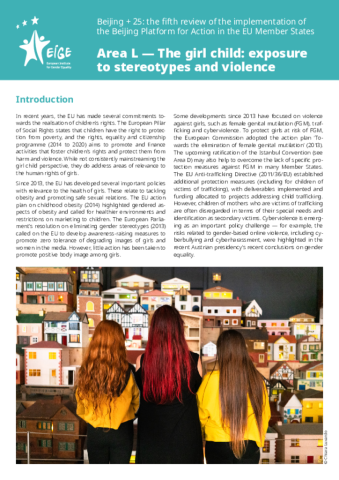Since 2013, the EU has developed several important policies with relevance to the health of girls. These relate to tackling obesity and promoting safe sexual relations. The EU action plan on childhood obesity (2014) highlighted gendered aspects of obesity and called for healthier environments and restrictions on marketing to children.
The European Parliament’s resolution on eliminating gender stereotypes (2013) called on the EU to develop awareness-raising measures to promote zero tolerance of degrading images of girls and women in the media. However, little action has been taken to promote positive body image among girls.
